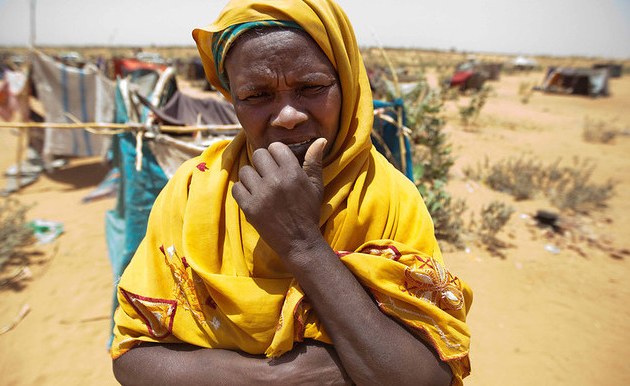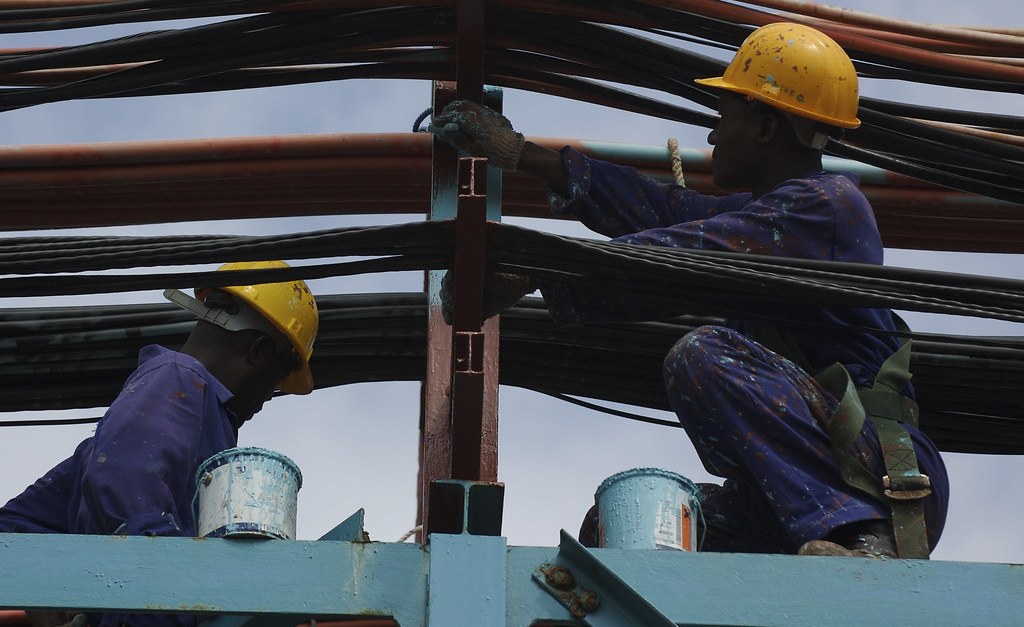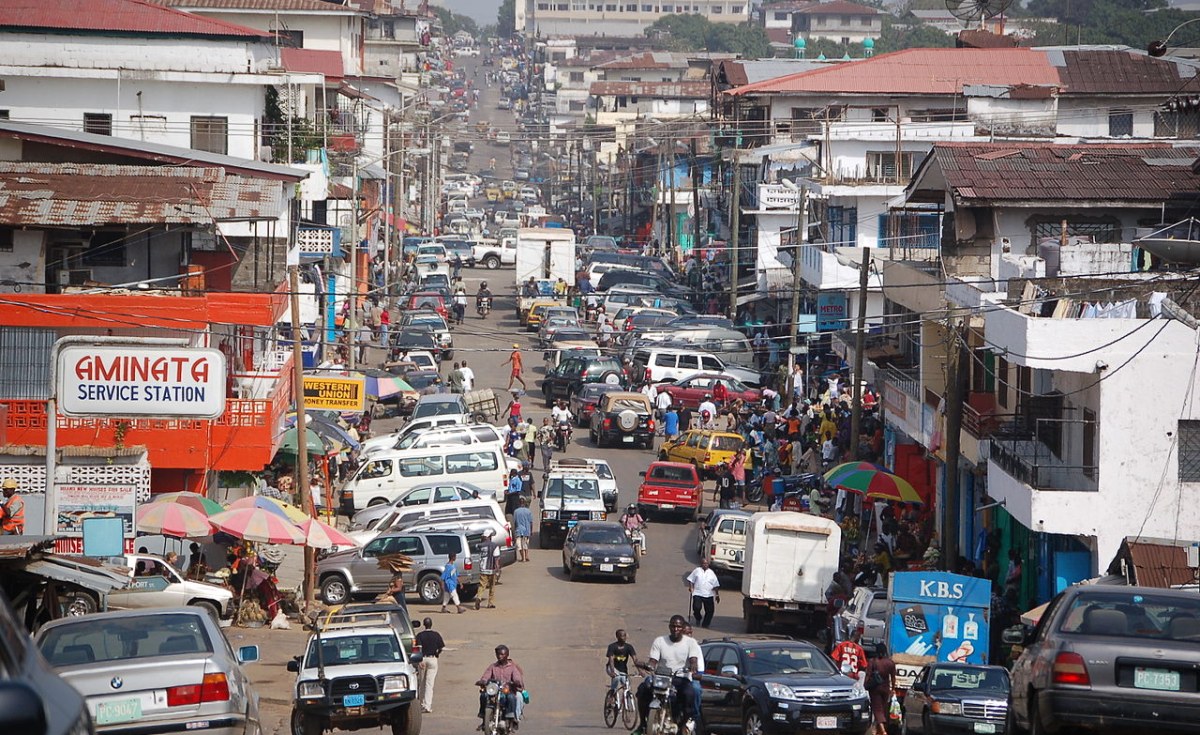While many Zimbabweans have always been craving for change, transformation has remained elusive because of an element of fear among the general populace which led to people suffering in silence.
With the Zimbabwean government having a long history of using state security apparatus to suppress dissent and Zimbabweans generally being a submissive lot it was unlikely they would one day stand up against their government which has for a long time taken advantage to do as it pleases while the people groaned from within but never attempted to question the powers that be on anything.
In 2005, faced with the threat of heavy electoral defeats in urban centres across the country, the Zanu PF government embarked on Operation Murambatsvina, a campaign ostensibly to clear slums in an effort to prevent, or at least reduce the spread of infectious diseases.
The exercise, which targeted “illegal” housing and commercial activities in urban areas, resulted in the demolition of houses and business structures, leaving more than 700,000 people homeless and without a source of livelihood. The United Nations (UN) estimated that around 2.4 million people were indirectly affected. But the people did nothing. There were no protests.
The UN observed that this was a deliberate attempt by the government to drive out large sections of the urban and rural poor who made up much of the internal opposition to the Zanu PF administration.
In 2009, Zimbabweans lost their life savings as the country moved from its worthless currency to a multi-currency system, with some people who had worked for more than 30 years getting absolutely nothing to show for their toil.
As unemployment reached untenable levels, hundreds of thousands of people invaded the Harare city centre to eke out a living through vending, with the blessing of first lady Grace Mugabe, just before the 2013 elections. However, soon after the elections the vendors were ruthlessly chased out of town with authorities burning down their warehouses. And still, the people just watched.
This was followed by the demolition of whole suburbs in Harare built under housing co-operatives initiated by Zanu PF but whose beneficiaries had gone on to overwhelmingly vote for the opposition MDC-T. This was seen as punishment for betraying Zanu PF in elections. But still the people did nothing.
Many other atrocities were committed against the citizens by the Zanu PF in the following months, with Zimbabweans still remaining silent, like lambs to the slaughter.
However, the recent spate of protests by citizens from across the sectors of the economy could be a sure sign of groundswell support for change in the country. Change that everybody seemed to have wanted but has been elusive for the better part of President Robert Mugabe’s rule since attainment of independence from Britain in April 1980.
The country has suddenly seen an upsurge in protests and demonstrations against the government. Something that was unheard of. It had always been un-Zimbabwean to openly criticise the government in general, and Mugabe in particular.
From the Occupy Africa Unity Square demonstrations, which saw activist Itai Dzamara disappear without trace for more than 15 months now; to the one-man demonstration by Remnant Church pastor Philip Mugadza; the #This Flag movement campaign started by pastor Evan Mawarire that calls on Zimbabweans to carry the country’s flag with them as a sign of protest to the government for failing to provide a dignified life to its citizens; the anti-import ban protests at Beitbridge Border Post; commuter omnibus operators’ protests; and the recent #Shut Down Zimbabwe and #Tajamuka protests in Harare, Zimbabweans appear to have gathered enough courage to demand change.
Political analyst Ernest Mudzengi believes people in Zimbabwe have been agitating for transformation for a long time and what is manifesting now is the intensification of that agitation.
“You will take note of the fact that when the government introduced the economic structural adjustment programme in 1990, people began to agitate for change. They felt that the government had left behind the wishes of the people. Then obviously the formation of the MDC was another chapter and that particular chapter ushered in a new era in which the masses of Zimbabwe looked forward to the MDC to help them in terms of bringing about transformation,” he said.
The only difference between then and now was that people had abandoned the political party approach and were proffering a people-centred solution where they directly spoke to their government through action.
“People are simply protesting against a situation in which they find themselves in. The government’s introduction of statutory instrument 64 has left people exposed to the harsher extremes of poverty and this is what people are reacting to. This is not personal; the people are simply saying we are hungry and as a government deal with our situation. You were elected to deal with people’s welfare and what you are doing is in contrast to people’s welfare,” Mudzengi said.
The policies being implemented by government were anti-people and affecting everyone regardless of political affiliation. Government was seeing shadows in trying to implicate a third force in the protests. People were not being pushed by anyone into protesting.
“They are seeing shadows; they are saying that this is a third force. Which third force they are talking about? Does a hungry person need a force from another to tell them that they are hungry? So far I think the government has not reacted in a manner that is people-centred. What they have done is to continue with the same arrogance. They are more concerned with power,” he said.
Another political analyst Rejoice Ngwenya said it would appear that even those hard-core Zanu PF supporters had stepped back in terms of activism, as it involved their livelihoods. In the past they would have ensured the protests did not succeed.
“Even the state machinery is stepping back because even the police brutality could have been worse than it was in 2008,” he said. People had for a long time yearned for change but had been lacking mechanisms and strategies.
“The electoral processes have been contaminated and people had to find an alternative way of achieving change that was constitutional and the recent protests were one way of citizens to show their anger. For a long time everybody has been willing to see change but was not willing to come out of their shells and saying this is what we want.”
Ngwenya said people had decided to come out of their shells now because the current crisis was different from all the other crises, such as in 2008. “Then we used to have money, but now there is no money and basically the people are now between a rock and hard place,” he said.
Veteran journalist and media analyst Tawanda Majoni said the recent emergence of “popcorn protests” by Zimbabwean citizens indicated growing anger and impatience with the current political and economic crisis.
“It is telling that citizens are leading the protests rather than the political parties, which have merely issued solidarity statements. As things stand, it looks like the protests will [snowball] as we move towards the 2018 general elections.”
He said what had started as pockets of resistance by small protest groups was now widening to include even government workers. It was most likely that political parties would seize the opportunity and join in the current citizen activism.
“The demonstrations may reach the 1998 proportions when residents rioted in protest against the government. While there may not be immediate change, as Zanu PF clings on to power, we could see a sea change on the eve of the elections in 2018 as unrest spreads.”
Majoni said the ban on a select number of imported goods was misplaced. While the government claimed it was protecting local industry it was not telling the world whether there was any industry left in the country to protect.
“Recently, government increased duty on imports, thereby burdening especially poor cross-border traders who have been retrenched and have taken to informal trade for a living. Government might be taking its unpopular policies and legislation for granted, but the truth is that it is feeding into growing disobedience.”
He noted that the new constitution had also provided an immense opportunity to citizens, as it empowered them to freely demonstrate and petition as long as it was peaceful.
Fortune Gwaze of the Zimbabwe Democracy Institute (ZDI) said the protests were symptomatic of the nature of the economy which was characterised by dwindling capacity utilisation, currently below 30 percent.
This was further compounded by government’s failure to enunciate a policy trajectory that took care of the needs of the people, such as access to food, health, and other basic necessities.
“There is souring unemployment and the consumer basket is increasing. The plethora of challenges in the country can only make it normal for people to protest and express their disaffection with the government,” he said.
There had been more vigour to protest now, as the situation in 2008 was much better because government could print money and those who were politically connected could hustle and get food on the table.
“The economy was bad in 2008 but not everyone was affected; some were insulated because they could access money. But now things are different. Everyone is getting US50 at the bank.”
He said the import ban on a number of basic commodities had also increased the people’s agitation for change as the majority were now living on cross-border trading and other informal activities.
South Africa Today Africa – Southern Africa Zimbabwe News










